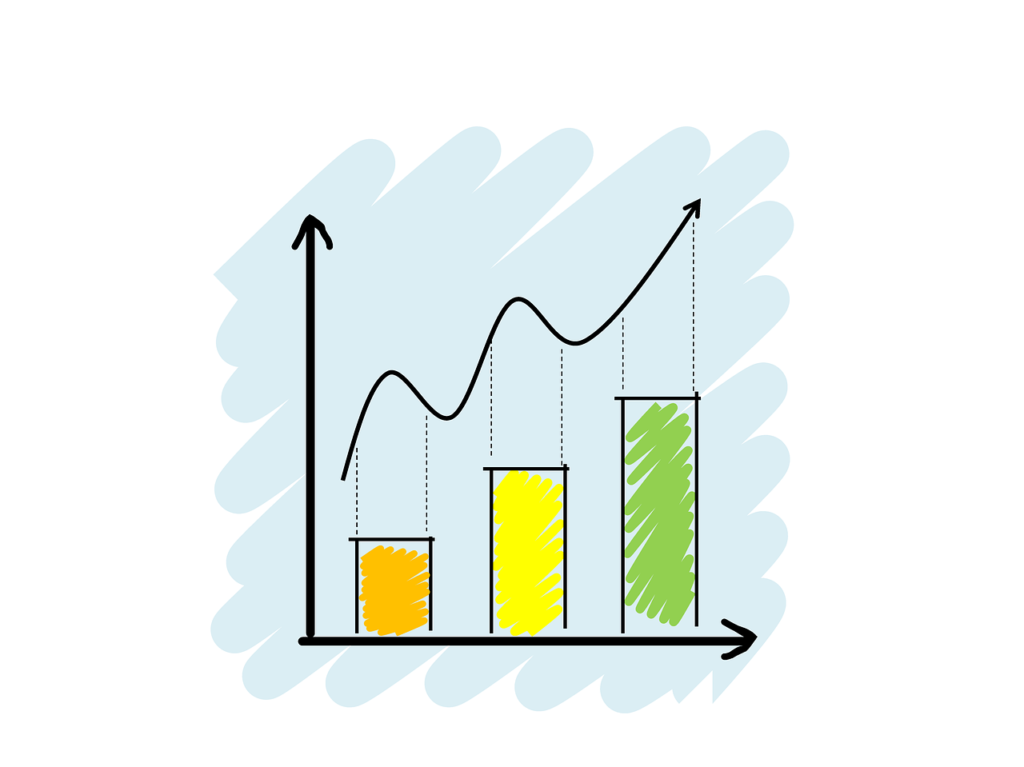In today's fast-paced digital world, small businesses need every advantage they can get to stay competitive. One powerful tool that can help them gain valuable marketing insights is data analytics. By analyzing and interpreting customer data, small businesses can uncover trends, preferences, and behaviors that will enable them to make informed decisions and tailor their marketing strategies accordingly. In this article, we will explore the ways in which small businesses can leverage data analytics to gain a deeper understanding of their target audience and drive business growth.

Understanding Data Analytics
Data analytics is the process of extracting meaningful insights and patterns from data to make informed business decisions. It involves collecting, organizing, analyzing, and interpreting data to uncover valuable information that can drive business growth. In today's digital age, data analytics has become a crucial tool for businesses of all sizes, including small businesses, to gain a competitive advantage in the market.
Benefits of Data Analytics for Small Businesses
-
Improved Decision Making: By leveraging data analytics, small businesses can make data-driven decisions rather than relying on intuition or guesswork. Analyzing data can provide valuable insights into customer preferences, market trends, and business operations, enabling small businesses to make informed decisions that lead to better outcomes.
-
Enhanced Customer Understanding: Data analytics allows small businesses to gain a deeper understanding of their target audience. Analyzing customer data can provide valuable insights into demographics, behavior patterns, and purchase preferences. This understanding can help small businesses tailor their marketing strategies and offerings to meet the specific needs and preferences of their customers.
-
Increased Efficiency and Cost Savings: Data analytics can help small businesses optimize their operations and identify areas of inefficiency. By analyzing data related to production processes, supply chain management, and resource allocation, small businesses can identify opportunities for improvement, enhance productivity, and reduce costs.
-
Competitive Advantage: Small businesses often face fierce competition from larger organizations. Data analytics can level the playing field by enabling small businesses to identify market trends, customer demands, and competitor strategies. This knowledge can help small businesses differentiate themselves, develop unique value propositions, and stay competitive in the market.
-
Improved Marketing ROI: By analyzing data on customer behavior, preferences, and purchase patterns, small businesses can optimize their marketing efforts. Data analytics can help small businesses identify the most effective marketing channels, tailor their messaging, and target the right audience segments. This targeted approach can result in higher conversion rates, increased customer engagement, and improved return on investment (ROI) for marketing campaigns.

Setting Up Data Analytics Infrastructure
To unlock the benefits of data analytics, small businesses need to establish a robust infrastructure for data collection, storage, and analysis. Here are the key steps involved in setting up a data analytics infrastructure:
Identifying Relevant Data Sources
The first step is to identify the data sources that are relevant to the business objectives. These sources can include customer databases, website analytics, social media platforms, sales records, and third-party data providers. By identifying the most relevant data sources, small businesses can ensure they collect the necessary data to gain valuable insights.
Implementing Data Collection Methods
Once the relevant data sources are identified, small businesses need to implement data collection methods. This can involve setting up tracking codes on websites, integrating data collection tools with customer relationship management (CRM) systems, or implementing data collection APIs. The goal is to collect data efficiently and accurately from various sources.
Ensuring Data Quality
Data quality is crucial for effective data analytics. Small businesses need to ensure that the collected data is accurate, complete, and reliable. This can involve implementing data validation checks, data cleaning processes, and regular data quality audits. By maintaining high data quality standards, small businesses can trust the insights derived from the analytics process.
Securing Data Privacy
Small businesses must prioritize data privacy and security. Implementing measures such as data encryption, access controls, and regular backups can help protect sensitive customer data from unauthorized access or data breaches. By prioritizing data privacy, small businesses can build trust with their customers and comply with applicable data protection regulations.
Data Analysis Techniques
Once the data analytics infrastructure is in place, small businesses can leverage various data analysis techniques to derive insights from their data. Here are some key techniques:
Exploratory Data Analysis
Exploratory data analysis involves examining and understanding the data to identify patterns, trends, and relationships. It helps small businesses uncover insights that may not be immediately apparent. Techniques such as data visualization, summary statistics, and correlation analysis can be used to explore the data.
Segmentation and Profiling
Segmentation involves dividing the target audience into distinct groups based on specific criteria such as demographics, behavior, or preferences. Profiling involves analyzing each segment's characteristics, needs, and preferences. This analysis helps small businesses tailor their marketing strategies and offerings to specific customer segments, resulting in more personalized and effective marketing campaigns.
Predictive Modeling
Predictive modeling uses statistical techniques and algorithms to forecast future events or outcomes based on historical data. Small businesses can use predictive modeling to anticipate customer behavior, identify potential opportunities, and make proactive decisions. Predictive modeling can help optimize marketing campaigns, inventory management, and pricing strategies.
Data Visualization
Data visualization involves presenting data in visual formats such as charts, graphs, and dashboards. Visualizing data makes it easier for small businesses to understand complex patterns and trends, communicate insights effectively, and make data-driven decisions. Data visualization tools and platforms can simplify the process of creating visually appealing and interactive visualizations.

Interpreting Data Analytics Results for Marketing Insights
Once data analytics techniques have been applied, small businesses must interpret the results to derive actionable marketing insights. Here are some key areas to focus on:
Identifying Target Audience
By analyzing customer data, small businesses can gain a clear understanding of their target audience. This includes analyzing demographics such as age, gender, location, and income levels. Understanding the target audience's characteristics helps inform marketing strategies and messaging.
Analyzing Demographics
Demographic analysis involves examining the characteristics of the target audience in terms of age, gender, location, occupation, and other relevant factors. This analysis helps small businesses understand who their customers are and tailor their marketing efforts accordingly.
Understanding Customer Behavior
Analyzing customer behavior provides insights into how customers interact with the business. This can involve analyzing website traffic, engagement metrics, purchase history, and customer feedback. Understanding customer behavior helps identify preferences, pain points, and opportunities for improvement.
Identifying Purchase Patterns
Analyzing purchase patterns helps small businesses understand how and when customers make purchasing decisions. This analysis can include factors such as purchase frequency, average order value, product preferences, and seasonal trends. Identifying purchase patterns helps optimize marketing campaigns and promotional strategies.
Optimizing Marketing Campaigns
Based on the insights derived from data analytics, small businesses can optimize their marketing campaigns to maximize effectiveness and efficiency. Here are some strategies to consider:
A/B Testing
A/B testing involves comparing two or more versions of a marketing campaign component, such as an email subject line or a website layout, to determine which version performs better. By conducting A/B tests, small businesses can identify the most effective approaches and refine their marketing campaigns accordingly.
Personalization
Personalization involves tailoring marketing messages and offerings to individual customers based on their preferences, behavior, and demographics. By personalizing marketing efforts, small businesses can improve customer engagement, increase conversion rates, and foster long-term customer loyalty.
Customer Lifetime Value (CLV) Analysis
CLV analysis helps small businesses understand the long-term value of a customer. By analyzing factors such as customer acquisition costs, repeat purchase rates, and average revenue per customer, small businesses can identify high-value customers and develop strategies to maximize their lifetime value. This analysis can inform decisions regarding customer retention, loyalty programs, and cross-selling or upselling opportunities.
Monitoring Competitor Analysis
Data analytics can also help small businesses monitor and analyze their competitors' activities. By tracking competitor data, such as pricing strategies, marketing campaigns, product launches, and customer feedback, small businesses can stay informed about market trends and competitor performance. This information can inform strategic decisions and help small businesses stay competitive in the market.
Overcoming Challenges in Data Analytics
While data analytics offers significant benefits for small businesses, there are some common challenges that need to be overcome:
Limited Resources and Expertise
Small businesses may face resource constraints in terms of budget, technology, and skilled personnel. To overcome this challenge, small businesses can consider outsourcing certain aspects of data analytics, collaborating with analytics service providers, or accessing user-friendly tools and platforms that simplify the analytics process.
Data Security and Privacy Concerns
Small businesses must prioritize data security and privacy to protect sensitive customer information. Implementing robust security measures, conducting regular data audits, and complying with relevant data protection regulations are essential to maintain trust with customers and avoid potential legal consequences.
Data Integration and Compatibility
Small businesses may have data stored in various systems or formats, making data integration and compatibility challenging. Investing in systems or tools that facilitate data integration, implementing standardized data formats, and ensuring data consistency across different systems can help overcome this challenge and streamline the data analytics process.
In conclusion, data analytics offers numerous benefits for small businesses, including improved decision making, enhanced customer understanding, increased efficiency, and a competitive advantage. By setting up a data analytics infrastructure, leveraging various data analysis techniques, and interpreting the results for marketing insights, small businesses can optimize their marketing campaigns, identify target audiences, and monitor competitors. While there may be challenges to overcome, such as limited resources, data security concerns, and data integration issues, small businesses can leverage data analytics to gain a competitive edge in the market and drive business growth.
I'm Ed Porada, the founder of VIP Marketing Hub and publisher of the VIP Marketing Hub e-Magazine. Join me in mastering digital marketing through workshops and training. We provide expert insights, top-notch education, strategies, and expertise to boost your brand's online visibility, generate leads, and build effective digital marketing for your business. Let's equip your brand with the essential digital tools and strategies to thrive online and off.

